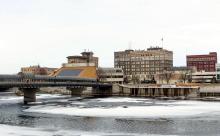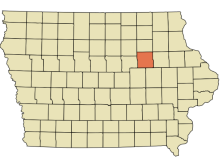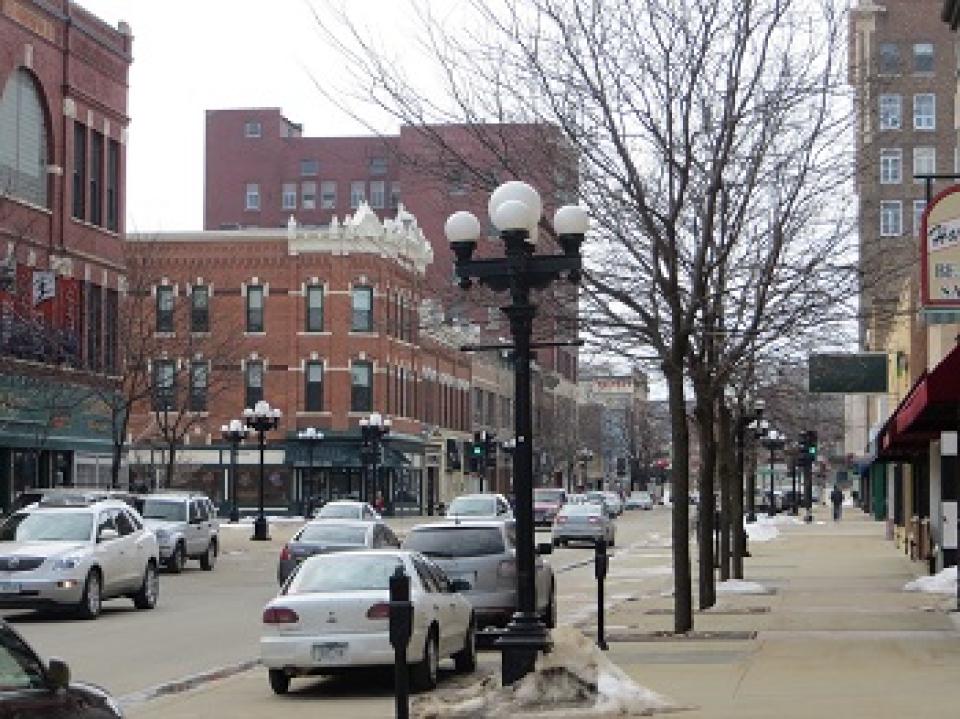
After years of consideration and planning, Waterloo, Iowa is finally moving quickly forward with its plan to build a citywide municipal fiber network. Once complete, the network aims to provide the city’s 67,695 residents with an affordable, fiber-based alternative to local monopolized broadband options that have long left regional locals frustrated and disappointed.
Waterloo expects that it will cost somewhere around $115 million to build the necessary fiber backbone and connect all Waterloo residents and businesses to the fledgling network. City officials expect the first customers to go live sometime later this year at up to gigabit speeds, though it will take roughly three years for the entire network to be built.

Much like the rest of the country, Waterloo leaders and residents received a crash course in the importance of affordable broadband during the Covid crisis, when the country’s spotty, sluggish, and expensive broadband networks were on full display due to a massive rise in telecommuting and home education.
Voters Declare GO Time on Muni Broadband
Fueled by frustration, Waterloo voters in September overwhelmingly approved the city issuing general obligation bonds to fund the start of construction for a city-wide municipal fiber network.
“The GO bonds can be paid for with multiple revenue streams that could include utility revenues and potentially TIF revenue, and debt service levy,” the project website states.
Of the 2,762 ballots cast, more than 84 percent voted “yes” on the September 13 ballot question asking voters to approve the issuance of $20 million in general obligation bonds to begin network construction.
At a local watch party that included Waterloo Mayor Quentin Hart, the crowd erupted in cheers as the final votes were being tallied, the Waterloo-Cedar Falls Courier reported – a celebratory signal that voters welcomed more choice in a market that has been dominated by a broadband duopoly comprised of Mediacom and CenturyLink.
After the vote, Mayor Hart said it “fulfilled what citizens chose in 2005” when voters first approved the creation of a municipal broadband utility.
“This is about our community and future and we’re grateful our residents and businesses feel as strongly as we do about Waterloo positioning itself with a fiber network that will propel us into the future,” Hart said.

The initial $20 million investment will largely go to the construction of a 100-mile fiber backbone network, which will feed not only residential and enterprise broadband service, but will also be used to support and monitor the city’s sewer, storm water, traffic, and water systems.
Last September the U.S. Department of Commerce announced that its Economic Development Administration (EDA) had awarded the city a $1.8 million grant funded by the American Rescue Plan to help fund part of the project’s middle mile network.
The city is also exploring numerous additional grant opportunities, including tapping into Iowa’s portion of the $42.5 billion Broadband Equity Access & Deployment (BEAD) program, made possible by the federal Infrastructure Investment and Jobs Act (IIJA).
Hart told local NBC affiliate KWWL that Waterloo’s Request for Proposal (RFP) is currently on the city’s February agenda, with aspirations to begin network construction in March.
"This further validates our vision for a fiber connected, smarter Waterloo and we welcome these dollars to fund key portions of our project," Mayor Quentin Hart also stated in a press release, noting that the investment will be matched with $667,682 in local funds and is expected to create somewhere in the vicinity of 177 new local jobs.
The City’s Long-Stalled Ambitions Encourage Local ISPs To Try Harder
As is often the case with municipal broadband projects, Waterloo’s efforts have prompted local providers to try a little harder than they normally do in the absence of competent federal telecom oversight and a dearth of local competition.
Regional ISP MetroNet has simultaneously been hard at work building its own $24 million gigabit-capable fiber network the provider says should be completed in two years. The company states that Construction has begun near the intersection of Hammond Avenue and East Ridgeway Avenue, with the first users connected sometime this winter.
Such private deployments tend to selectively cherry-pick the most lucrative parts of the city, whereas Waterloo’s project promises uniform fiber access to every home in the city once the project is complete.
Waterloo residents have been pondering such a project for the better part of the last two decades. Locals voted in 2005 to create a municipal telecommunications utility despite a well-funded opposition campaign by local incumbent providers. But the project languished for years as the city continued to struggle with expensive, substandard broadband.
The Waterloo Telecommunications Utility board met numerous times over the years to discuss the possibility of asking the community for public broadband funding, but a 2015 request to hire an outside consultant failed, leaving the city’s ambitions languishing for years.
Other Iowa Communities Consider Options
Numerous other Iowa communities have been exploring similar options, usually as an extension of the local power utility. As we’ve seen in other states, large private telecom providers have repeatedly tried to pass state legislation curtailing the construction and funding of municipal broadband networks, so far to no avail.
SSB1184 (2020) and SSB3009 (2021) both attempted to tightly constrain municipal broadband funding options. The bills were primarily the pet lobbying project of regional ISP Mediacom, which serves about two-thirds of all Iowans, and has long waged a covert campaign against communities looking to build better, more affordable broadband alternatives.
Waterloo’s efforts are the culmination of years of not only trying to get network logistics and financing right, but fend of large providers hellbent on protecting their lucrative regional monopolies over technology increasingly viewed as an essential utility.
"Every Waterloo citizen and visitor also deserves the highest quality, fastest Internet service available, and with Waterloo Fiber, this will be delivered by a highly reliable, underground system, 100% fiber based — locally owned and operated," Hart said.
Header image of downtown Waterloo courtesy of Wikimedia Commons, Attribution 2.0 Generic (CC BY 2.0)
Inline image of Waterloo courtesy of Flickr user David Wilson, Attribution 2.0 Generic (CC BY 2.0)
Inline map of Waterloo courtesy of Wikimedia Commons, Attribution-ShareAlike 3.0 Unported (CC BY-SA 3.0)







